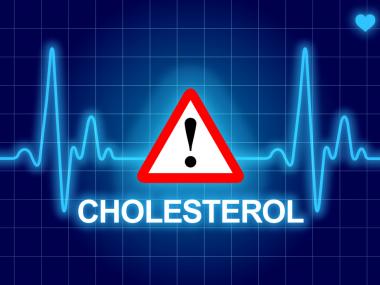What Is Fatty Liver?
Up to 46% of Americans suffer from “fatty liver,” a condition of the liver that can place you at risk for cirrhosis. What is it, who gets it, how can you tell if you have it, and what can you do to treat it?
Here’s a great topic suggestion from a listener who inspired me to write today’s episode.
“My wife was recently diagnosed with “Non-Alcoholic Fatty Liver Disease” in a mild form.
I love listening to the way explain things and I would like to understand more about this.
Can you please cover this in one of your shows?”
Ravi
Such a common issue, l can’t believe I haven’t thought of it these past few years while podcasting for Quick and Dirty Tips. Thank you for the suggestion (and for the compliment), Ravi!
Has your doctor told you that you have something called “fatty liver”? If so, you’re not alone. In fact, studies estimate that up to 46% of the U.S. population may have fatty liver, and this continues to rise sadly as our obesity epidemic worsens in this country. It is by far the most common cause of liver issues in both men and women.
Never miss another tip. Sign up for our Quick and Dirty newsletters to get all your favorite tips delivered straight to your inbox. Sign up now.
What Is Fatty Liver?
The more accurate diagnosis is termed, “Nonalcoholic Fatty Liver Disease” (NAFLD), but for our purposes let’s refer to it as “fatty liver” for short.
The words “fat” and “liver” seem pretty odd in the same sentence. It can sound intimidating to hear your doctor tell you that your liver is full of fat—is that indeed what they are saying? Does it mean you are overweight? Not necessarily.
Liver biopsies taken from patients diagnosed with fatty liver often reveal fat droplets within the cells when viewed under the microscope; hence, the term “fatty liver.” It is not a reflection of how overweight a person is. Although patients who are overweight have a higher risk of fatty liver, not all patients with fatty liver are overweight; and not all overweight patients have fatty liver.
Patients who are most at risk for fatty liver are those with the following medical conditions (almost all of which I’ve previously discussed in prior episodes that you may find useful to check out):
- Diabetes Type II
- Elevated cholesterol
- Hypertension
- Metabolic syndrome
- PCOS (Polycystic Ovarian Syndrome)
- Hypothyroidism
- Sleep Apnea
- Obesity
- Medication side effects: amiodarone, tamoxifen, steroids, estrogen
Patients with fatty liver often don’t even know it, as it is typically is silent and asymptomatic.
How Is Fatty Liver Diagnosed?
Because there are no symptoms associated with fatty liver, it’s often discovered by the doctor when running a routine blood test (as in a physical exam). Elevated liver enzymes, typically AST (aspartate aminotransferase) and/or ALT (alanine aminotransferase) are found incidentally.
Then, as part of the detective work to discover the reason for these elevations (assuming you are not drinking significant amounts of alcohol), in addition to ordering further lab studies, your doctor may order an ultrasound. Fatty liver is often diagnosed on a liver ultrasound. CT scans can also incidentally show fatty liver, but ultrasounds are better at visualizing the liver and without the radiation exposure.
There are two categories of fatty liver, a mild and reversible process (called Nonalcoholic Fatty Liver, or NAFL), and a more advanced disease with inflammation and possible scarring of the liver (termed Nonalcoholic Steatohepatitis, or NASH). Sometimes a blood test is used to measured levels of “ferritin,” and when over 1.5 times the upper limit of normal, it can signify more advanced disease severity. In order to further determine the severity of the damage caused by these fatty droplets in patients deemed higher risk, a liver biopsy may be performed.
Most patients do not require a liver biopsy, however. Most cases of fatty liver are benign and reversible, but occasionally can inflame the liver, cause enlargement (termed “hepatomegaly”), and even cirrhosis.
How Is Fatty Liver Treated?
Therefore, if you can catch fatty liver before it progresses, you can prevent the potential for further damage. Here are some tips on how to treat fatty liver:
-
Weight loss: This is the most important treatment goal in those with fatty liver, as weight loss has been shown to reverse the fatty infiltration of the liver. Set a goal of 1-2 pounds a week. Medications for weight loss should be considered as a last resort, since often results are short-lived.
-
Control your blood sugars if you are a diabetic.
-
Lower your cholesterol if you have high cholesterol.
-
Avoid all alcohol.
-
Supplement with omega-3 fatty acids: some studies show a possible improvement in some patients with fatty liver.
Share your ideas and learn more quick and dirty tips with us on the House Call Doctor’s Facebook and Twitter pages! You can even find me on Pinterest.
Please note that all content here is strictly for informational purposes only. This content does not substitute any medical advice, and does not replace any medical judgment or reasoning by your own personal health provider. Please always seek a licensed physician in your area regarding all health related questions and issues.
Doctor with liver image courtesy of Shutterstock








